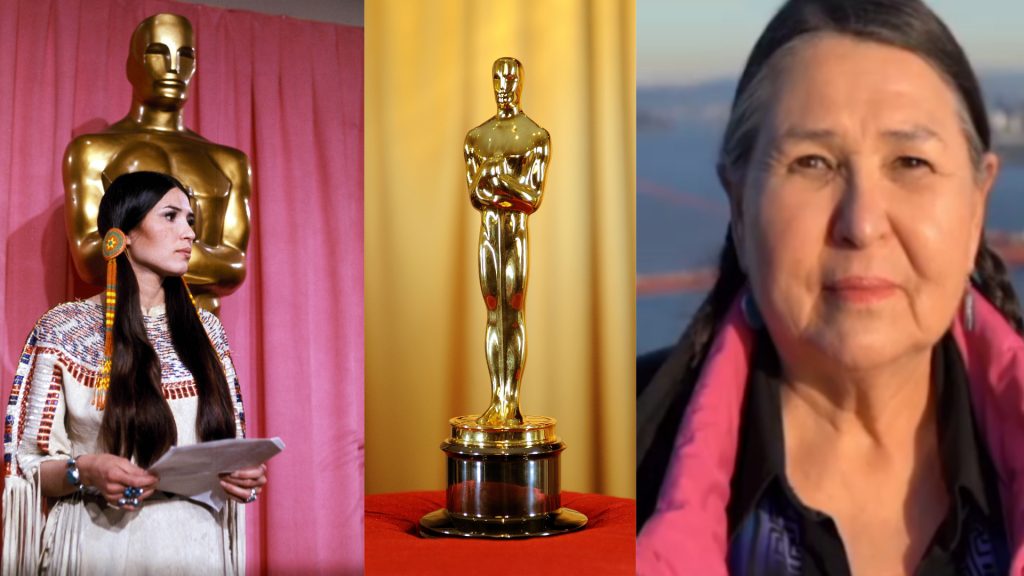“I was stunned. I never thought I’d live to see the day I would be hearing this, experiencing this,” Sacheen Littlefeather tells The Hollywood Reporter following the news of the Academy’s apology. Apparently, she first privately received the apology in June. It has been nearly 50 years since she was mistreated for her protest during the 1973 Oscars. Now 75 years old, she had not expected to receive a formal apology from them.
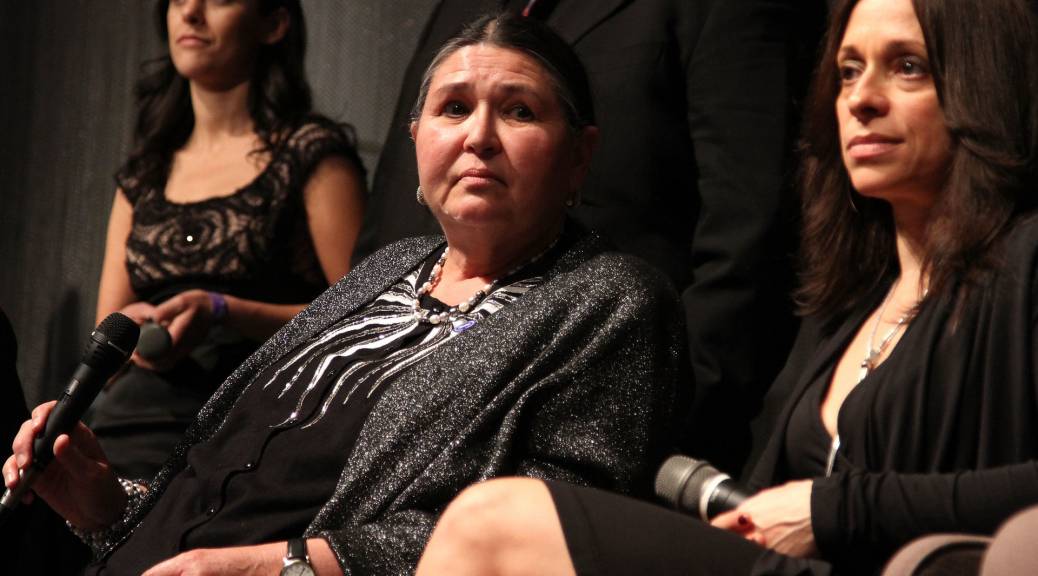
Marie Louise Cruz, commonly known as Sacheen Littlefeather, has been an active Native American activist since the occupation of Alcatraz in 1969. As an actress, she starred in movies such as The Trial of Billy Jack (1974), Johnny Firecloud (1975), and Winterhawk (1975).
An Evening with Sacheen Littlefeather
She will also serve as an honored guest at the Academy Museum event on September 17. “Bird gave me a call — on the phone, of course. He tried to send smoke signals but they wouldn’t fit underneath the door,” she said. The full statement of apology will also be read then. According to The Hollywood Reporter, the producer Bird Runningwater reached out first to Littlefeather on behalf of the Academy.
As a member of the Academy Inclusion Advisory Committee and co-chair of the Academy’s Indigenous Alliance, he believed that it was part of the museum’s efforts to revisit the past and set its future through a more inclusive space. Heather Rae, a co-member of the Committee, wanted a fruitful relationship with the actress and activist. This led to record an episode for the Academy Museum podcast, released in June, as well as a visual history for the Academy Oral History Projects, to be released next month.
The 1973 Oscars incident
The 1973 Oscars were held during the American Indian Movement’s two-month occupation of Wounded Knee in South Dakota. Sacheen Littlefeather stood on the stage on behalf of Marlon Brando, who won the best actor for The Godfather. Littlefeather is the first Native American to stand at the Academy Awards. In her speech, she stated that Brando cannot accept the award because of the treatment of the film industry toward American Indians.
Littlefeather started, “Hello. My name is Sacheen Littlefeather. I’m Apache and I am president of the National Native American Affirmative Image Committee. I’m representing Marlon Brando this evening and he has asked me to tell you in a very long speech, which I cannot share with you presently because of time but I will be glad to share with the press afterwards, that he very regretfully cannot accept this very generous award.”
Then, she continued, “And the reasons for this being are the treatment of American Indians today by the film industry – excuse me – and on television in movie reruns, and also with recent happenings at Wounded Knee. I beg at this time that I have not intruded upon this evening and that we will in the future, our hearts and our understandings will meet with love and generosity. Thank you on behalf of Marlon Brando.”
During the mistreatment
In an interview with Stewart last June, Littlefeather narrated her detailed experience during that night. She talked about the producer who taunted her after seeing her speech. “But then, he saw the speech that I had in my hand, and he said, ‘Well, you can’t read that. We only have so much time left. And, if you read that, I will have you arrested.”
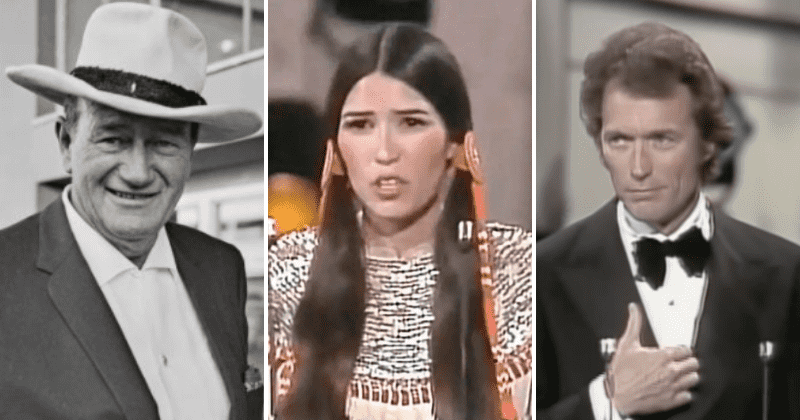
She was constantly booed by the audience throughout her speech. She was mocked by Clint Eastwood after. In addition, actor John Wayne was furious enough that he was being held back from attacking her. Since then, she has also been discriminated against and attacked for years.
“A lot of cheap shots were thrown at me. And there were a lot of rumors, gossip columnists that were trying to make it something that it was not. And I was boycotted from every talk show while people talked about me. I could not and was not allowed to speak for myself. It was as though I was silenced.” Littlefeather stated.
Letter of Reconciliation
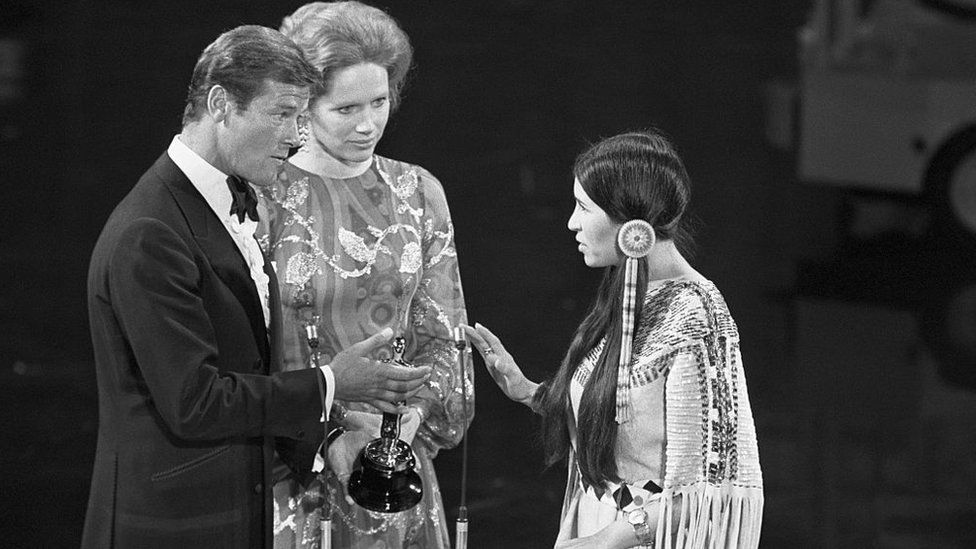
David Rubin, the former president of the Academy of Motion Picture Arts and Sciences, addressed an apology to Littlefeather in a formal letter. He first recognized her bravery for standing up on behalf of Native Americans. “As you stood on the Oscars stage in 1973 to not accept the Oscar on behalf of Marlon Brando, in recognition of the misrepresentation and mistreatment of Native American people by the film industry, you made a powerful statement that continues to remind us of the necessity of respect and the importance of human dignity.”
Then, he continued to acknowledge what she endured and felt at that moment. “The abuse you endured because of this statement was unwarranted and unjustified. The emotional burden you have lived through and the cost to your own career in our industry are irreparable. For too long the courage you showed has been unacknowledged. For this, we offer both our deepest apologies and our sincere admiration.”
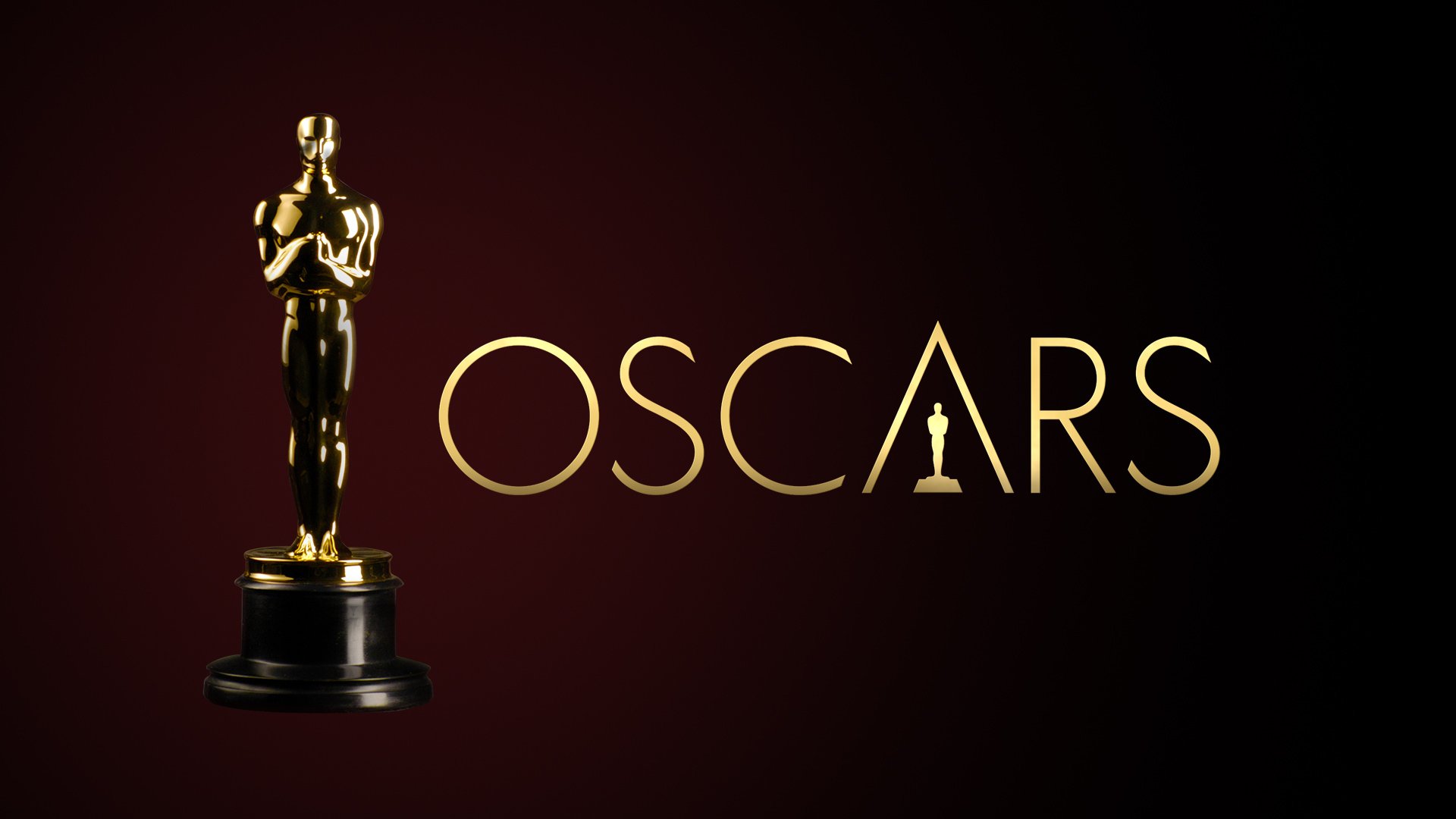
He also promised better treatment and representation for a more open and inclusive industry. “Today, nearly 50 years later, and with the guidance of the Academy’s Indigenous Alliance, we are firm in our commitment to ensuring indigenous voices—the original storytellers—are visible, respected contributors to the global film community. We are dedicated to fostering a more inclusive, respectful industry that leverages a balance of art and activism to be a driving force for progress.”
Despite being long overdue, it is a glimpse of hope for more progressive film industry. It is commendable that the Academy recognized its faults and expressed its desire to reconcile.
Littlefeather’s response
It was Academy Museum director and president Jacqueline Stewart who visited her home in June. “I was thinking, it can’t be a pair of slippers. That’s too casual for the Academy,” Littlefeather said after Stewart presented two gifts. The gifts were a photograph of her on the Museum’s gallery walls and a framed letter from David Rubin.
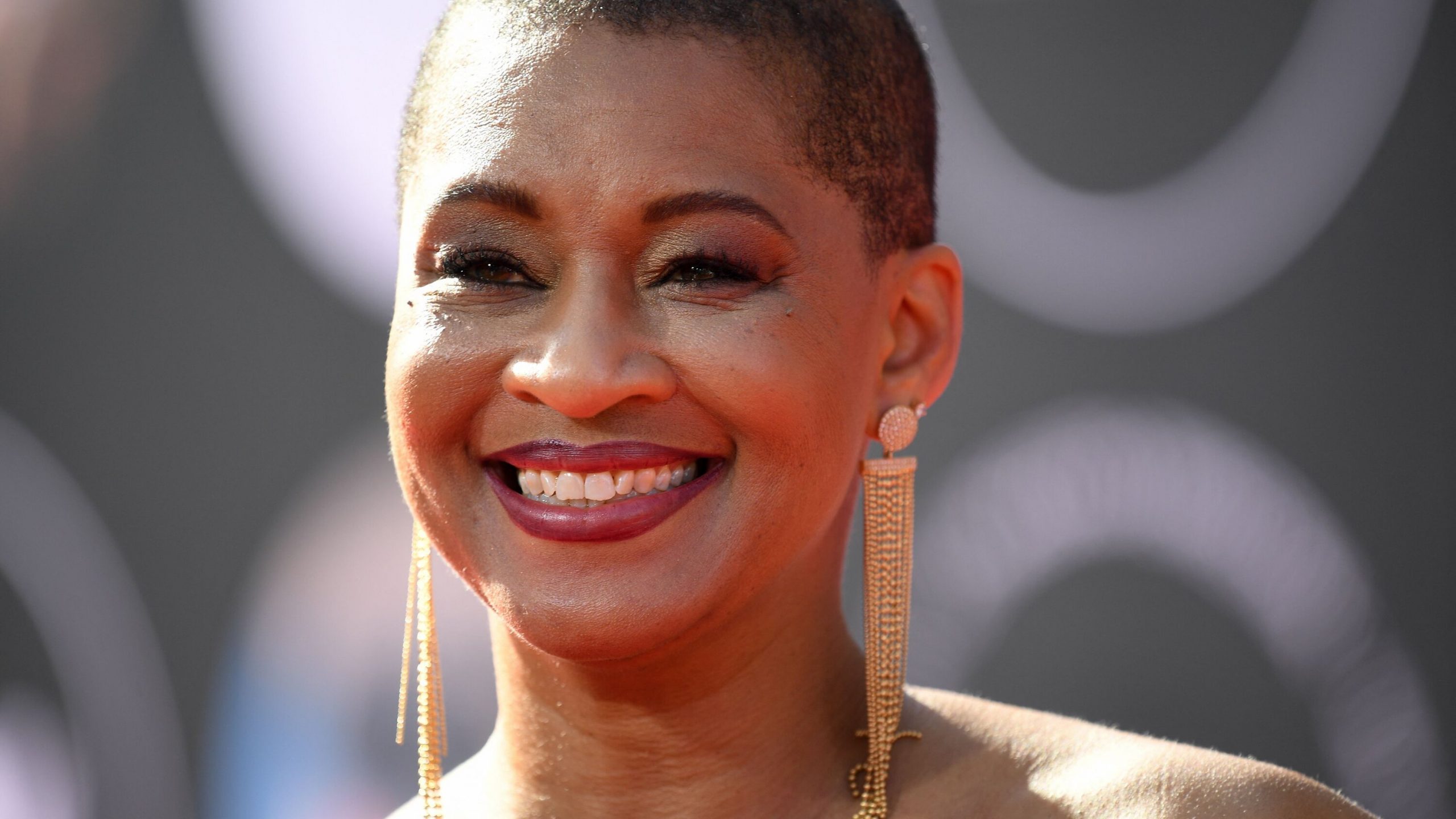
- Littlefeather was silent but attentive while the letter was being read aloud. She continued to be firm and stood her ground afterward. “You know, I never stood up onstage in 1973 for any kind of accolades. I only stood there because my ancestors were with me, and I spoke the truth.”
- The apology was definitely something she never expected. Especially since it took specifically 49 years since the incident. After she paid tribute to the Native American filmmakers and artists in Hollywood the emotions finally hit. Sacheen Littlefeather cried, clutching the framed letter to her chest.
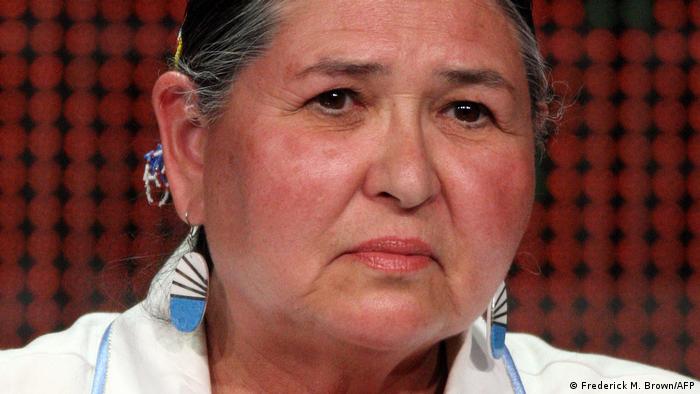
- She is consoled at the fact that there is progress in Native American representation. There is now recognized for their talents in Hollywood. “At long last, somebody is breaking down the doors. And I’m so very happy this is happening — even though I don’t swear like they do on Reservation Dogs.”
- What happened during the 1973 Oscars greatly changed the trajectory of her life. Littlefeather merely advocated for better treatment of Native Americans in the film industry. However, she was mocked and insulted. This shows the internalized racist community of the Academy then, and their lack of respect towards Native Americans.
- Definitely, a genuine apology was needed. One that would make amends for what she felt. Even so, such an apology should have come a few years earlier.
It’s been nearly 50 years – too little, too late?
Hollywood celebrities have yet to respond to the Academy’s apology. But public users on Twitter express mixed reactions. A few of them explained that though the apology was late, it was certainly better than receiving none.
https://twitter.com/SIfill_/status/1559384140528615424?t=tW5OtMo3ACbGzkpdF75o7Q&s=19
- British musician Nitin Sawney also expressed support as a member of the Academy:
As a member of @TheAcademy I fully endorse the apology offered to Sacheen Littlefeather for her mistreatment at the 1973 Oscars. It’s nearly 50 years too late but it’s a start… https://t.co/p9E7XnORR2
— Nitin Sawhney (@thenitinsawhney) August 16, 2022
- However, most of them stressed that the Academy’s apology was long overdue.
https://twitter.com/SAPPHlCENJ0YER/status/1559372225253240832?t=fa604Rr1ou1WM-cIaQeCnQ&s=19
Wow. I mean… [checks watch]. But still, wow. https://t.co/WkERyfzs7r
— Carol Ray Hartsell ™️ (@carolrhartsell) August 16, 2022
- Sacheen Littlefeather thought the same. The actress is already living with metastasized breast cancer. “Yes, there’s an apology that’s due. As my friends in the Native community said, it’s long overdue.”
- Quoting from The Hollywood Reporter, if it was a few more years late, she would not have heard the apology herself. It is also too late for her fellow activists to hear the apology. “I could have been dead by now. All of my friends — [activists] Dennis Banks, Russell Means, John Trudell, [comedian] Charlie Hill — are gone.”
- Furthermore, Charles Koshiway, Littlefeather’s husband, also died of blood cancer last November. Thus, he won’t be able to witness the apology. “His spirit is still here with me, and I know that what he wanted for me was always justice and reconciliation.”
- Although Sacheen Littlefeather heartily accepted the Academy’s apology, it is still quite questionable why it took so long.
Speculations: genuine reconciliation or patching up former controversies?
- There is a possibility that the apology is a “PR stunt” to cover up the Academy’s already damaged reputation. Certain users from Twitter express concern that the apology was simply meant to cover the incident with Chris Rock and Will Smith.
50 years to apologize to littlefeather but took 50 seconds to ban will smith from the oscars for a slap, mannn lmfao https://t.co/LuePcA4Ncv
— bryan 𐙚 (@taurusidiot) August 15, 2022
Due to the slapping incident, Will Smith is now banned from attending the Oscars for 10 years. This caused outrage from all over the internet. Smith acted upon the need to defend his wife’s name after being mocked by Chris Rock. However, it was still Smith who is receiving punishment for his “violence.”
The Academy was called out for their punishment. But it led to a point that Will Smith had to publicly apologize to Chris Rock for his actions.
It is also speculated that people started bringing up the 1973 Oscars incident to prove it was the worst thing that happened at the Oscars. Precisely because it was brought up, the people behind the Academy had to do quick damage control.
It’s unfortunate but the Academy is only apologizing to Sacheen Littlefeather now in 2022 because it was shamed into it after Hwood said the Will Smith slap was the worst thing to happen in Academy history and sleuths brought John Wayne trying to attack her was actually the worst
— Geeknik 🇺🇸 (@geeknikJT) August 16, 2022
No regrets on behalf of the Native American community
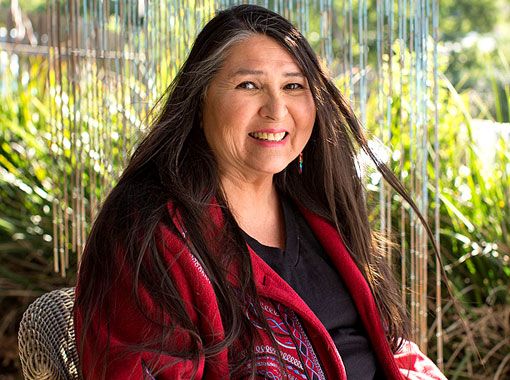
Nothing is certain regarding the Academy’s true intentions. Regardless of the incident or the Academy’s apology, Sacheen Littlefeather expresses no regrets for what she did. And despite the backlash she received, she also had people who supported her.
“Well, people like Coretta King, she spoke up for me. Other Indian leaders, like Oren Lyons, who was Chief of the Onondaga; Russell Means, who was one of the American Indian Movement leaders; Dennis Banks, who was one of the American Indian Movement leaders; Cesar Chavez, who was a leader in the Chicano Movement; people like this, who were supporting me. I knew I had done the right thing. And then, everybody else didn’t matter, because these were real people.”
She wanted a space for Native Americans to be treated equally in the industry. She wants them to be employed, to be themselves. They should let them play themselves in films. “Let us be a part of your industry, producing, directing, writing. Don’t write our stories for us. Let us write our own stories. Let us be who we are.” And for as long as her advocacies were being heard, any response from the system or oppressor would matter.
Legacy of Sacheen Littlefeather
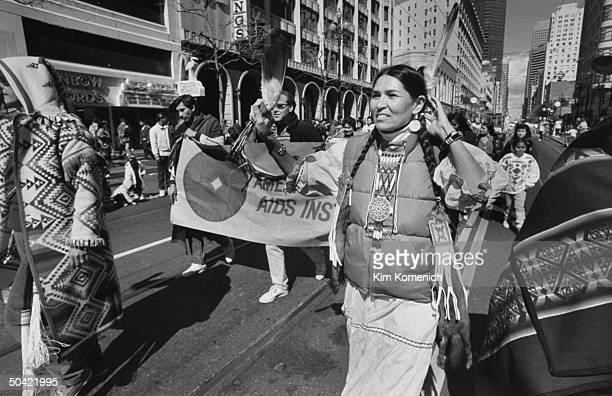
Furthermore, what matters in this situation is the victim and what she feels. What matters is she receives somewhat closure from the long years of emotional torture. She feels like the apology was a way to cleanse her mind, body, spirit, and heart. That the sacred circle is completing itself before she goes into this life. “It feels that the truth will be known. And it feels like the creator is being good to me.”
The moment she fought for the rights of Native Americans, she thought of children like her niece having the chance to dream. “And where she would be able to go through them, to be able to make her dreams come true, of singing, of acting and doing. This is what I did. She is the beginning of a whole new agenda. And so, I passed the baton on to her. And I do it gratefully and thankfully.”
We stand in solidarity with Sacheen Littlefear for her advocacies. We also pray for her health.
OTHER NEWS: ‘Ghost of Tsushima’ movie: Lead actor candidates, release date, and more
What are your thoughts on the previous 1973 Oscars incident? Do you have your own speculation as to why they apologized now? Share them below! Until then, stay with us here at Spiel Times for more content.
